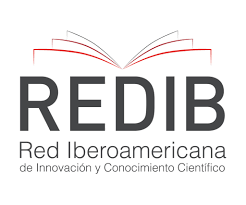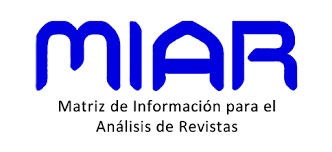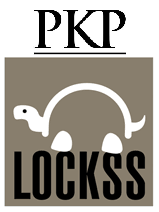Poland, from its centenary to the fall of communism
DOI:
https://doi.org/10.51743/cpe.45Keywords:
Poland, Saint John Paul II, Communism, democracy, SolidarityAbstract
Poland is an important country of the European Union, we celebrate the centenary of its independence. In order to analyze more rigorously some of its current actions, this article analyzes some of the most important aspects of its history in the 20th century. From the conquest of its independence in 1918 until the fall of communism in 1989 and the recovery of its freedoms. The importance of the Catholic Church and of St. John Paul II in the preservation of the cultural and religious identity of the Polish people is indicated. It is not a very different country from the rest of the European contour, but it faces different responses to common challenges, and this nuance is the result of a particular hard history, without whose understanding it is difficult to understand the current reality.
Downloads
Global Statistics ℹ️
|
516
Views
|
447
Downloads
|
|
963
Total
|
|
References
ANDERLE, A.: “La intervención española en la revolución húngara de 1956”, en HAOL (Historia Actual Online) nº 10, (Primavera, 2006), pp. 115-123.
BARLINSKA, I.: La sociedad civil en Polonia y Solidaridad, Madrid, CIS, 2006.
DAVIS, N.: God´s Playground: A history of Poland. Oxford, Oxford University,1981.
DZIUROK, A.; GALEZOWSKI, M.; KAMINSKI, L. y MUSIAL, F.: Od niepodleglosci, do niepodleglosci. Historia Polski 1918-1989, Warszawa, IPN, 2014.
DUDEK, A.: Historia polityczna Polski 1989–2012. Kraków, Znak, 1997.
GWIAZDA, A.: Democracy in Poland. New York, Routledge. 2016. DOI: https://doi.org/10.4324/9781315680118
HERRERO, M.: Papel de Solidaridad en el proceso de transición democrática en Polonia, (Tesis doctoral inédita), UCM, 2000.
KAWALEC K.: Roman Dmowski 1864-1939. Wrocław, Ossolineum, 2002.
KLOCZOWSKI, J.y, MULLEROWA, L., SKARBEK, J.: Zdziejow Kosciola katolicko w Polsce. Krakow, Znac, 1986.
KUNICKI, M. S.: Between the Brown and the Red: Nationalism, Catholicism, and Communism in Twentieth-Century Poland. The Politics of Bolesław Piasecki. Athens, Ohio University Press, 2013.
MICKIEWICZ, A.; SLOWACKI, J.; KRASINSKI, Z.; NORWID, C. K. (2014): Poesía polaca del Romanticismo. Edición bilingüe de Fernando Presa González. Madrid, Cátedra, 2014.
MILLARD, F.: Democratic elections in Poland, 1991-2007. New York, Routledge, 2010. DOI: https://doi.org/10.4324/9780203872727
Nie ma zycia bez swobody. 30 lat Mlodej Polski (1979-2009), UMK, Torun, 2009.
PASZKIEWICZ, K.: Partie i koalicje wyborcze III Rzeczypospolitej. Wrocław, Wydawnictwo Uniwersytetu Wrocławskiego, 2000.
PORTER, B.: Poland in the Modern World: Beyond Martyrdom, United Kingdom, John Wiley and Sons Ltd, 2014.
SALKOWSKI, J.: Wincenty Witos. Warszawa, Dig, 1998.
SULEJA, W.: Josef Pilsudski. Wrocław, Ossolineum, 1997.
WEIGEL, G.: Juan Pablo II. El final y el principio, Planeta, Barcelona, 2011.
ZARYN, J.: Kosciol w PRL. Warszawa, Instytutu Pamieci Narodowej, 2004.
Downloads
Published
How to Cite
Issue
Section
License
The author reserves the rights (copyright) of the published works, and the journal encourages and allows their reuse, from the preprint. The works are published in the electronic edition of the journal under a license "Creative Commons Attribution / Attribution-NonCommercial 4.0 International Public License - CC BY-NC 4.0", and can be copied, used, disseminated, transmitted and publicly exhibited.
The author / s partially transfer the property rights (copyright) of this work for the printed and online editions, provided that:
- The authorship and original source of its publication (magazine, publisher and URL of the work) is cited.
- Are not used for commercial purposes.
- The existence and specifications of this user license are mentioned.
It also declares to have respected the ethical principles of research and to be free from any conflict of interest.
"C.P.E." encourages the authors and the scientific community to the maximum promotion and dissemination of the works in their final version through:
1) Your list of contacts (emails) and social networks (Facebook, Twitter, LinkedIn ...).
2) Institutional repository of your University and public repositories (Mendeley, Cosis ...).
3) Scientific social networks (ResearchGate, Academia.edu, Kudos ...).
4) Personal or institutional website, blog, etc.
5) Google Scholar, ORCID, ResearchID, ScopusID, Dimensions, PlumX ...
6) Printed copies purchased directly and sent to specialists for reading and subsequent citation if appropriate.




















1.png)
1.png)

1.png)





.png)
.png)

.png)
1.png)
1.png)
